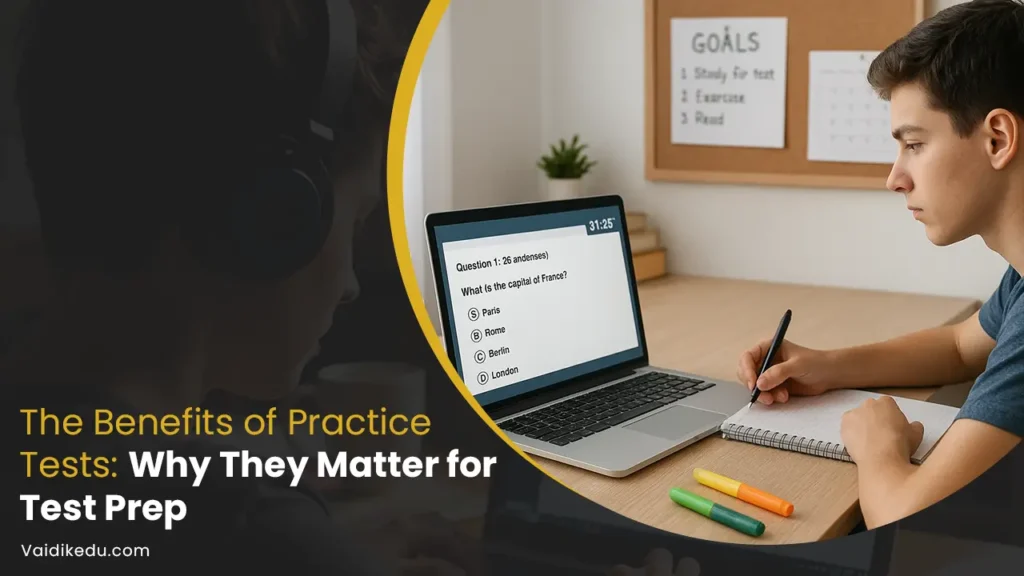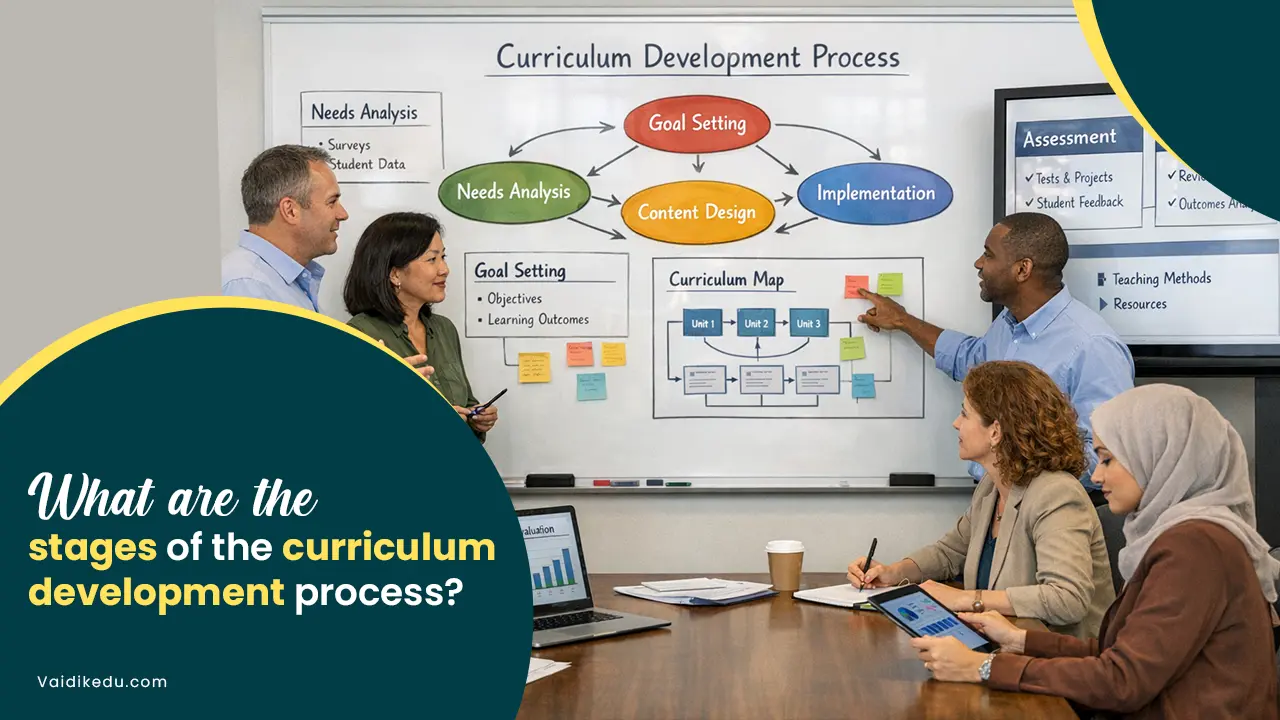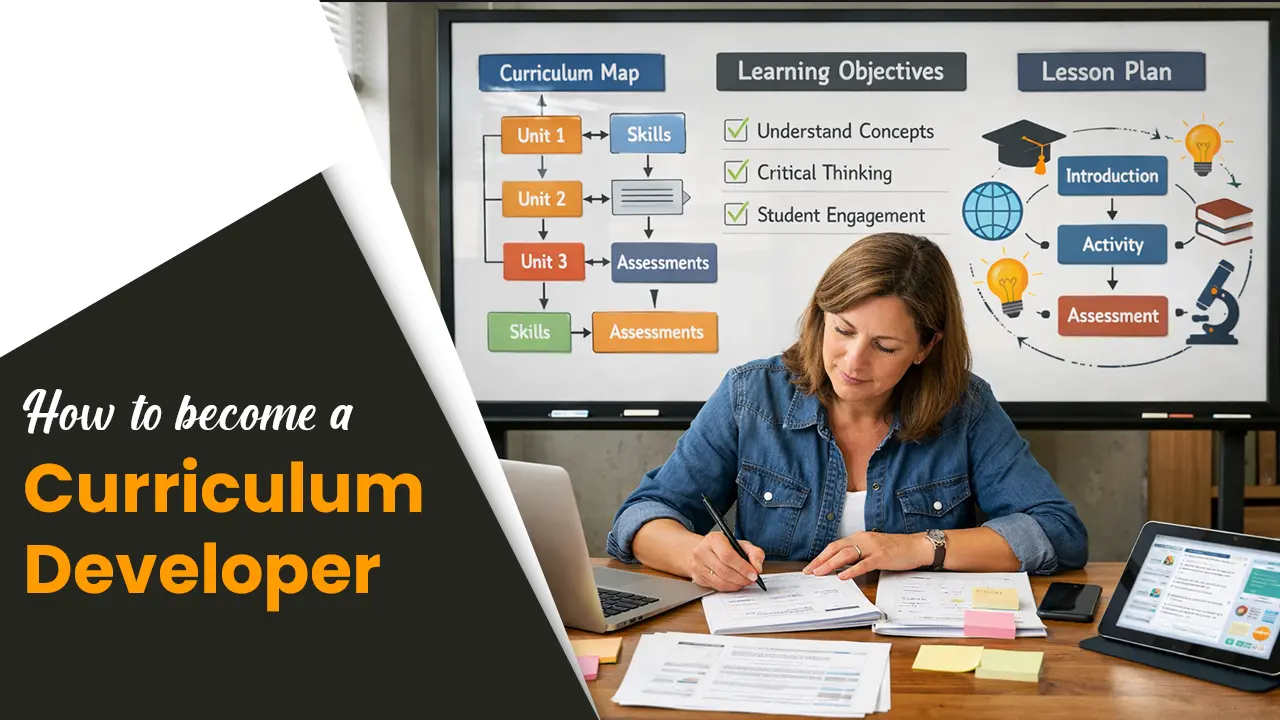
In educational and professional testing, practice is the key to success. Among the various techniques open to students, one stands out as the most effective: practice tests.
The mock exams offer a remarkable option or experience in the testing method in a controlled setting, providing valuable insights into the format, time limit, and student’s preparation level in comparison to the actual test. Practice tests are crucial components of a sufficient test preparation strategy.
What Are Practice Tests
They are primarily mock exams developed to imitate the format, content, and timing in comparison to real tests. They are widely employed in practice for exams such as the SET, GRE, NET, and other professional certification exams.
They often have questions that are equivalent in design and difficulty level to the actual exam, allowing students to familiarize themselves with the test environment. Practice quizzes can be constructed by test preparation firms, educational institutes, or by students.
They can be available in different formats, like online platforms, printed books, or learning applications.
Advantages of Practice Tests
Familiarity with Exam Structure: One of the most important advantages is that it helps students become familiar with the examination format. Comprehending the design of the test, such as the parts/section format, types of questions, and time limits, helps in reducing anxiety and improving performance on test day.
Assessment of Learning And Skills: Exercise quizzes deliver a clear sight of a student’s strengths and weaknesses. By examining the performance level, one can identify areas that require additional focus.
This targeted method of studying guarantees that your efforts are focused on the areas that will produce the most significant advancement.
Time Management: It is a critical factor in examinations. Practice tests allow students to develop a pace, providing that they allocate adequate time per section without rushing or leaving any unanswered questions. By imitating real test circumstances, practice tests prepare students to manage their time effectively under stress.
Deduction of Examination Anxiety: For numerous students, examination anxiety is a substantial obstacle to their success. Practice exams can relieve this anxiety by delivering a safe and low-stakes setting to experience the testing procedure.
The more regular you are with the exam, the less intimidating it evolves. Over time, repeated disclosure to practice quizzes can construct confidence and reduce stress.
Supports Learning: Practice tests are effective tools for strengthening learning. The process of recalling and applying information to test questions intensifies memory and understanding.
Additionally, reviewing wrong answers helps students learn from their mistakes and avoid repeated mistakes in the future. This iterative procedure of testing and inspection is a key feature of effective learning.
Tracking Progress: Regularly bearing practice tests authorizes students to track their progress and estimate the significance of their study methods.
Progress in scores provides concrete evidence of evolved learning and may increase motivation. Conversely, identifying stagnation or decrease in performance can mark a need for adapting another study routine.
Preparation For Final Exam: Forging the situations of the Final test often benefits from practice tests. By imitating the conditions, time constraints, and cognitive effort directed on examination day, practice tests allow students to build the energy and focus needed to perform at their best. This preparation is extremely helpful for lengthy exams that demand sustained concentration.
Producing The Most of Practice Tests
Regular Practice: Incorporate practice tests into your study plan at frequent intervals. For example, a full-length practice test every two weeks, two/ three months before the exam. A consistent practice guarantees steady gain and helps keep familiarity with the material.
Forge Real Examination Conditions: To obtain the most in-practice quizzes, replicate the actual exam conditions. Such as a quiet, distraction-free environment, setting a timer, and adhering strictly to the time limits. This helps to build the mental and physical perseverance required for test day.
Review And Analysis: After completing the test, take the time to thoroughly review your answers. Analyze both correct and incorrect responses to identify patterns and underlying issues.
Using A Variety of Practice Quizzes: Expand your knowledge by using tests from multiple sources. Different tests and resources may emphasize different question types or subjects, delivering a more thorough preparation and understanding. This variety assures that one is equipped for any surprises on the Final day.
Setting Goals: Set precise, measurable goals for individual practice tests. For instance, one might desire to enhance the score by 5% with each subsequent test.
Coalesce Practice Tests with Different Study Methods: While practice tests are important, they should not be the only study strategy. Improve your preparation with other techniques, such as revisiting textbooks, following test prep lessons, or utilizing flashcards. This thorough approach provides thorough preparation.
Conclusion
Practice tests are a key part of preparing for tests and offer many benefits. They help students get used to the test format, find areas where they need to improve and lower their test anxiety.
By using practice tests, students can build confidence and increase their chances of doing well. When used wisely, these tests improve learning and empower students to do their best on test day.
Using practice tests is an important step in tackling the challenges of academic and professional tests and can lead to future success.
Frequently Asked Questions
Practice tests improve familiarity with the test format, enhance time management skills, reduce test anxiety, and provide insights into areas that need improvement.
It is recommended to take practice tests regularly, such as once every two weeks, to track progress and maintain familiarity with the material.
No, practice tests should be used in conjunction with other study methods, such as reviewing textbooks, attending classes, and using flashcards, for comprehensive preparation.
Review your answers thoroughly, analyze mistakes, and focus on areas that need improvement. Use this feedback to adjust your study plan and track your progress.








